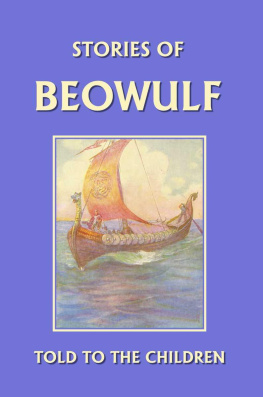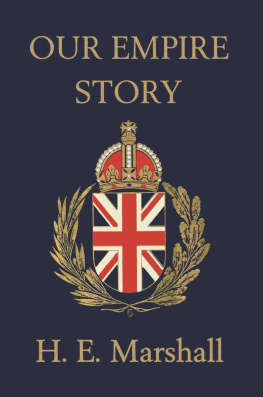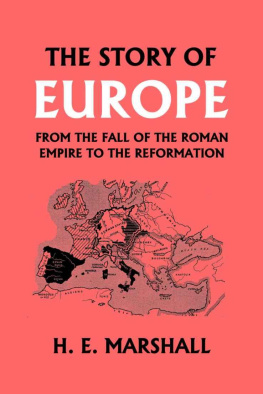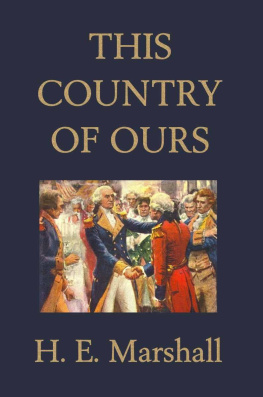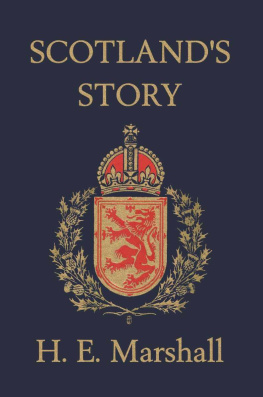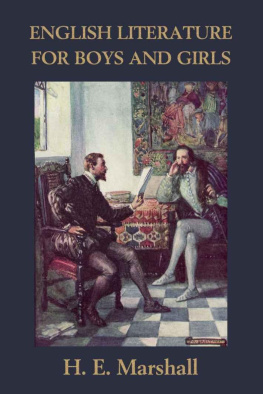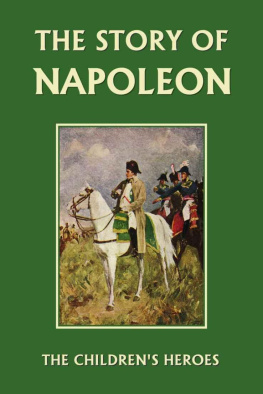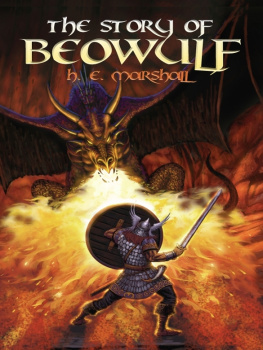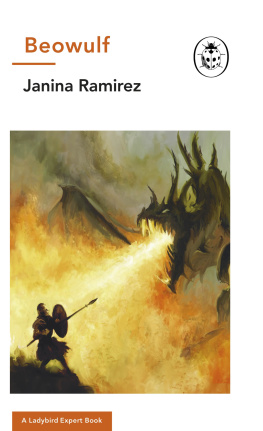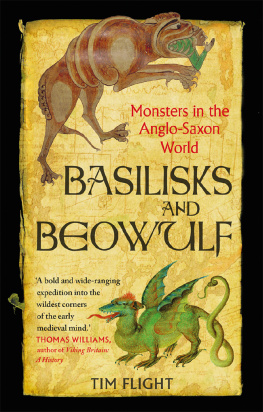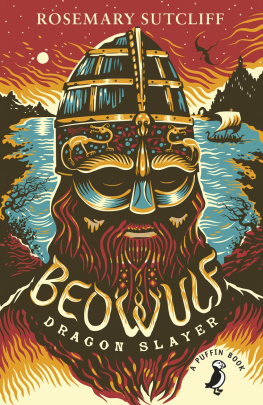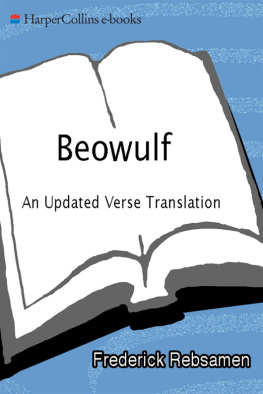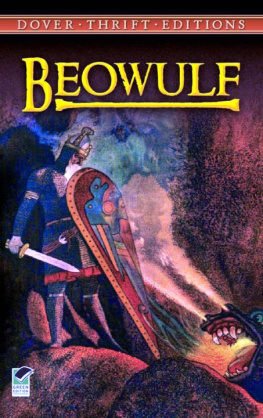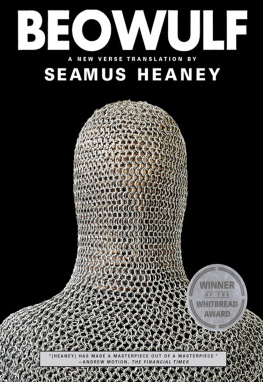Stories of Beowulf Told to the Children
by
H. E. Marshall
Yesterday's Classics
Chapel Hill, North Carolina
Cover and Arrangement 2010 Yesterday's Classics, LLC
All rights reserved. No part of this book may be reproduced or retransmitted in any form or by any means without the written permission of the publisher.
This edition, first published in 2010 by Yesterday's Classics, an imprint of Yesterday's Classics, LLC, is an unabridged republication of the work originally published by Thomas Nelson and Sons, Ltd. in 1908. This title is available in a print edition (ISBN 978-1-59915-000-0).
Yesterday's Classics, LLC
PO Box 3418
Chapel Hill, NC 27515
Yesterday's Classics
Yesterday's Classics republishes classic books for children from the golden age of children's literature, the era from 1880 to 1920. Many of our titles are offered in high-quality paperback editions, with text cast in modern easy-to-read type for today's readers. The illustrations from the original volumes are included except in those few cases where the quality of the original images is too low to make their reproduction feasible. Unless specified otherwise, color illustrations in the original volumes are rendered in black and white in our print editions.
About This Book
"B EOWULF is known to every one." Some months ago I read these words, and doubted if they were true. Then the thought came to me that I would help to make them true, for Beowulf is a fine story finely told, and it is a pity that there should be any who do not know it. So here it is "told to the children."
Besides being a fine story, Beowulf is of great interest because it is our earliest epic, that is, the oldest poem in the Anglo-Saxon language which tells of noble deeds in noble words.
In the British Museum there is a little book, worn and brown with age, spoiled by fire and water. Yet it is not so brown and old, it is not so spoiled but that it may still be read by those who know Anglo-Saxon. This book is a thousand years old, and in its worn brown pages it holds the story of Beowulf.
There is something strange and wonderful in the thought that the story which pleased our forefathers a thousand years ago should please us still to-day. But what is more wonderful is that it should be told in such beautiful words that they thrill us with delight and make us feel as if those old days were fresh and living. In the telling of the story I have tried to keep something of that old-time spirit, and when, later, you come to read the tale in bigger and better books, I hope that you will say that I did not quite fail.
H.E. Marshall
Oxford, 1908
Contents
CHAPTER I
How Grendel the Ogre Warred with the Dane Folk
L ONG, long ago, there lived in Daneland a king called Hrothgar. The old men of his country loved him and bowed the knee to him gladly, and the young men obeyed him and joyfully did battle for him. For he was a king mighty in war, and valiant. Never foe could stand against him, but he overcame them all, and took from them much spoil.
So this king wrought peace in his land and his riches grew great. In his palace there were heaped gold in rings and in chains, armour finely welded, rich jewels which glowed as soft sunlight.
Then King Hrothgar looked upon this great treasure and brooded thereon. At last he said, "I will build me a great hall. It shall be vast and wide, adorned within and without with gold and ivory, with gems and carved work. The fame of it shall spread over all the earth, and men shall sing of it for all time. And when it is builded, therein shall I call all my warriors, young and old and divide to them the treasure that I have. It shall be a hall of joy and feasting."
Then King Hrothgar called his workmen and gave them commandment to build the hall. So they set to work, and day by day it rose quickly, becoming each day more and more fair, until at length it was finished.
It stood upon a height, vast and stately, and as it was adorned with the horns of deer, King Hrothgar named it Hart Hall.
Then, true to his word and well pleased with the work of his servants, King Hrothgar made a great feast. To it his warriors young and old were called, and he divided his treasure, giving to each rings of gold.
And so in the Hall there was laughter and song and great merriment. Every evening when the shadows fell, and the land grew dark without, the knights and warriors gathered in the Hall to feast. And when the feast was over, and the wine-cup passed around the board, and the great fire roared upon the hearth, and the dancing flames gleamed and flickered, making strange shadows among the gold and carved work of the walls, the minstrel took his harp and sang.
Then from the many-windowed Hall the light glowed cheerfully. Far over the dreary fen and moorland the gleam was shed, and the sound of song and harp awoke the deep silence of the night.
Within the Hall was light and gladness, but without there was wrath and hate. For far on the moor there lived a wicked giant named Grendel. Hating all joy and brightness, he haunted the fastness and the fen, prowling at night to see what evil he might do.
And now when night by night he heard the minstrel's song, and saw the lighted windows gleam through the darkness, it was pain and grief to him.
Very terrible was this ogre Grendel to look upon. Thick black hair hung about his face, and his teeth were long and sharp, like the tusks of an animal. His huge body and great hairy arms had the strength of ten men. He wore no armour, for his skin was tougher than any coat of mail that man or giant might weld. His nails were like steel and sharper than daggers, and by his side there hung a great pouch in which he carried off those whom he was ready to devour.
Terrible was this ogre Grendel to look upon
Now day by day this fearsome giant was tortured more and more, for to him it was a torture to hear the sounds of laughter and of merriment. Day by day the music of harp and song of minstrel made him more and more mad with jealous hate.
At length he could bear it no longer. Therefore one night he set out, and creeping through the darkness came to Hart Hall, where, after the feast and song were done, the warriors slept.
Peacefully they slept with arms and armour thrown aside, having no fear of any foe. And so with ease the fierce and savage giant seized them with his greedy claws. Speedily he slew thirty of the bravest warriors. Then howling with wicked joy he carried them off to his dark dwelling, there to devour them.
Oh, when morning came, great was the moaning in Daneland. When the sun arose and shone upon the desolated Hall, and the war-craft of Grendel was made plain, there was weeping. A cry of woe and wailing crept out over the moorland, and the woesome sound made glad the heart of the Wicked One.
But Hrothgar, the mighty, sat upon his throne downcast and sorrowful. He who was strong in war wept now for the woe of his thanes.
With eyes dimmed and dark, in grief and rage he looked across the wild wide moorland, where the track of the monster was marked with blood, and he longed for a champion.
But who could fight against an Ogre? Before the thought the bravest quailed. Such a fight would be too loathly, too horrible. It was not to be endured.
When night fell the sorrowing warriors laid themselves down to rest with sighs and tears, in the bright hall that once had rung with songs and laughter. But the greedy monster was not yet satisfied, his work was not yet done. Stealthily through the darkening moorland again the Ogre crept until he reached the Hart Hall.

